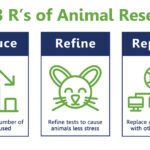The act of killing cats evokes a chilling reaction among animal lovers and the general populace alike. These innocent creatures, often regarded as companions, face heinous acts of cruelty at the hands of human perpetrators. Exploring the consequences faced by those who engage in such barbaric behavior reveals not only the immediate legal repercussions but also a more profound and often unseen element: karma.
When we delve into the topic of what happens to individuals who kill cats, it’s crucial to bifurcate the discussion into two primary segments: legal ramifications and karmic consequences. The legal framework governing animal cruelty varies significantly across jurisdictions, yet some fundamental principles are prevalent. In many countries and states, animal cruelty is codified as a criminal offense, leading to potential jail time, fines, and a criminal record. The severity of the punishment typically corresponds with the egregiousness of the act committed.
Consider a scenario where an individual intentionally harms a cat. Depending on the jurisdiction, this act could be classified as a misdemeanor or a felony. If found guilty, the repercussions might include incarceration, community service, or mandatory counseling aimed at addressing violent tendencies. Furthermore, animal cruelty convictions can have enduring consequences, such as restrictions on pet ownership or professional opportunities, particularly in fields that involve working with animals.
The societal implications of such actions are equally striking. People who commit acts of animal cruelty often find themselves ostracized, facing condemnation from their communities. This social shaming can lead to isolation and a loss of support systems, further compounding any psychological issues that may be present. These individuals may also experience backlash on social media platforms, garnering a public outcry that can haunt them for years.
Yet, the conversation does not end with legal ramifications. The concept of karma introduces a more insidious and abstract form of retribution. Karma, derived from the Sanskrit word “karmā,” embodies the idea that one’s actions have consequences that reverberate throughout life. In this context, individuals who kill cats might not only face societal backlash and legal repercussions but may also experience unforeseen negative consequences that can manifest over time.
One might speculate on the psychological toll that accompanies such heinous actions. Psychological studies suggest a correlation between animal cruelty and underlying violence towards humans. Thus, those who harm animals may find that their propensity for violence or aggression multiplies, ultimately impacting their relationships with others—be they familial, platonic, or romantic. This deterioration of personal relationships can result in a profound sense of isolation and despair.
Moreover, individuals who exhibit such violent behavior often fail to understand the gravity of their actions. They may become ensnared in a cycle of aggression, committing further acts of cruelty against animals and possibly leading to violent behavior against humans. The consequences of their initial choices create an unending spiral of negativity that is difficult to escape.
In addition to social and psychological repercussions, there lies a significant spiritual aspect to consider. Many cultures assert that one’s actions, particularly those that involve harm to innocent beings, will ultimately lead to a spiritual reckoning. Whether one subscribes to a traditional belief system or not, there is a prevailing notion in humanitarian circles that inflicting suffering onto others will lead to suffering in return—albeit in ways that may not be immediately apparent.
This spiritual consequence can manifest in various ways. Individuals who are engaged in cruelty may find themselves beset by misfortune, from health issues to financial struggles. A heightened sense of anxiety or guilt might gradually engulf them, distancing them from joy and fulfillment in their lives. Those who believe in the cosmic balance of good and evil might interpret these struggles as a manifestation of karma—a direct consequence of their wrongful actions.
Interestingly, this karmic cycle extends beyond the individuals who commit these acts. It often affects the communities surrounding them. As collective consciousness shifts, the community’s response to animal cruelty can dictate the overarching cultural attitudes toward the welfare of all animals. Communities that harbor a culture of compassion may inspire reforms, enacting stricter laws or supportive programs for animal protection, while simultaneously isolating and stigmatizing perpetrators.
Such shifts may indeed deter individuals from committing acts of cruelty in the first place. Education plays an essential role here; fostering empathy in children and promoting an understanding of the emotional needs of animals can curtail future acts of violence against them. Communities armed with understanding and compassion create an atmosphere where empathy thrives, and the negative repercussions faced by those who harm animals become even more pronounced.
In conclusion, the repercussions faced by those who kill cats are profound, stretching far beyond immediate legal consequences. They reveal a tapestry of societal, psychological, and spiritual consequences—consequences that weave their way back into the lives of those who perpetrate cruelty, as well as the broader community. Ultimately, the concept of karma serves as a reminder that actions have consequences, fostering an environment where empathy guides human interactions with all living beings. Through education, community support, and strong legal frameworks, society can deter such acts of brutality and cultivate a more compassionate world.






